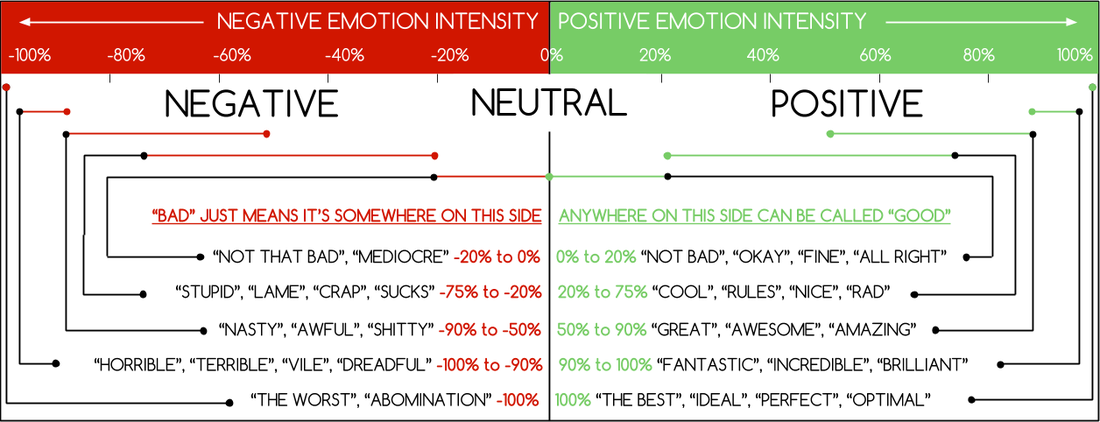We all use words like "Awesome", "Stupid", "Okay", "Lame", and "Terrible" day to day. They're denotative words, but their denotation is basically limited to being synonyms for either "Good" or "Bad". It's the connotation of these adjectives that gives them their colour, their richness, their true power.
But until now there's never been a clear standard for quantifying that connotation.
Well now there is. Now we are able to gain more meaningful insight into how others feel about anything, and we're able to express our own emotions with a far higher degree of accuracy. The English language has a vast quantity of words for "Good" and "Bad" but is generally terrible at allowing speakers to express themselves in words. Now, with this awesome chart, you have a standard for quantifying the connotation carried by common words. Each of the common words in the chart now corresponds to a precise and appropriate range of emotional intensity based on common their modern usage.
This allows you to evaluate your own feelings on a topic and to express them using the same colourful language you normally use, but with standardised connotative accuracy so that people will actually understand what you mean instead of having to guess.
But until now there's never been a clear standard for quantifying that connotation.
Well now there is. Now we are able to gain more meaningful insight into how others feel about anything, and we're able to express our own emotions with a far higher degree of accuracy. The English language has a vast quantity of words for "Good" and "Bad" but is generally terrible at allowing speakers to express themselves in words. Now, with this awesome chart, you have a standard for quantifying the connotation carried by common words. Each of the common words in the chart now corresponds to a precise and appropriate range of emotional intensity based on common their modern usage.
This allows you to evaluate your own feelings on a topic and to express them using the same colourful language you normally use, but with standardised connotative accuracy so that people will actually understand what you mean instead of having to guess.


 RSS Feed
RSS Feed
